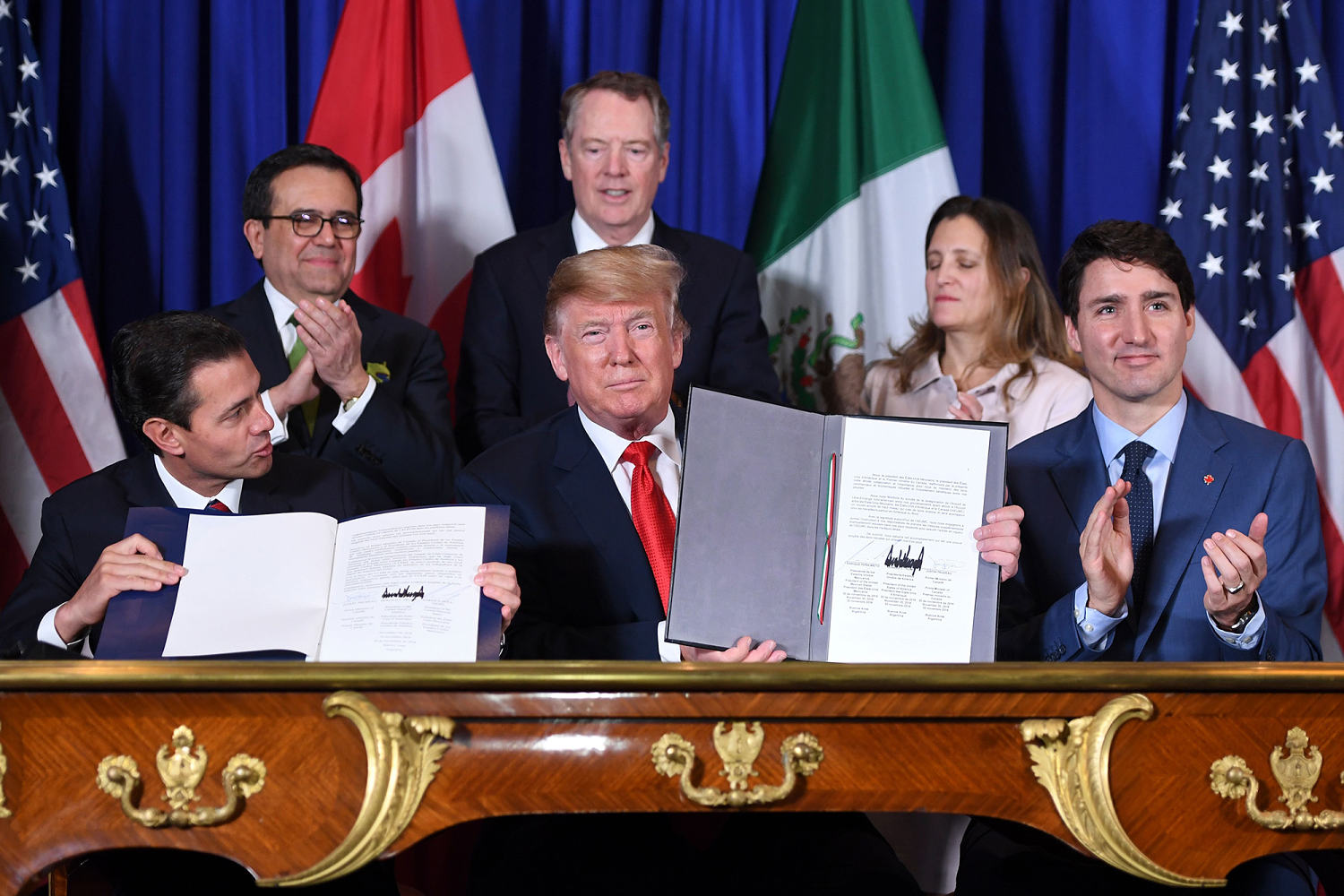
Throughout the 2024 presidential race, Donald Trump made a series of bold claims about his love of trade tariffs and the magical results they would produce. The Republican struggled to understand the basics of the issue, and people who recognized reality tried valiantly to set him straight, but the GOP candidate nevertheless tried to sell voters on the idea that radical and consequential tariffs would work wonders.
As the president-elect prepares to take office again, he’s apparently prepared to follow through on his campaign season rhetoric. NBC News reported:
President-elect Donald Trump said Monday that his incoming administration would slap new tariffs on imported goods from Mexico, Canada and China, solidifying a key campaign promise that could have a major impact on trade. Trump said in a post on Truth Social that he plans to impose a 25% tariff on products imported from Mexico and Canada, framing the proposal as a response to the ongoing fentanyl crisis.
For context, the United States’ three largest trading partners are Canada, Mexico and China. If Trump’s latest rhetoric reflects his actual intentions — a dubious assumption, to be sure — the Republican intends to impose new trade tariffs on all of them.
The first announcement, published to his social media platform in the late afternoon, said he will “sign all necessary documents to charge Mexico and Canada a 25% Tariff on ALL products coming into the United States.” Trump added that this policy would remain in place until he’s satisfied that “Drugs” and “all Illegal Aliens” are no longer reaching American soil.
Less than a minute later, the president-elect published a follow-up item directed at China, complaining that Beijing isn’t executing enough drug dealers. “Until such time as they stop [exporting drugs], we will be charging China an additional 10% Tariff, above any additional Tariffs, on all of their many products coming into the United States of America,” Trump wrote.
I have no idea whether the Republican intends to follow through on any of this, and recent history offers little guidance. Trump might change his mind — perhaps more than once — between now and Inauguration Day. He also might pretend that he never wrote these items and anyone who claims otherwise is peddling “fake news.” It’s equally possible that Trump will soon declare that Canada, Mexico and China have met his demands, even if they haven’t, making his tariffs unnecessary. Time will tell.
But as the public and our trading partners digest his odd online missives, there are plenty of reasons for the public to care.
First and foremost, Trump, who was elected at least in part because of voters’ frustrations with inflation and higher prices, is pursuing a policy that will lead to higher prices. Much of the produce Americans purchase, for example, comes from Mexico. New tariffs will mean paying more for fruits and vegetables at grocery stores.
Similarly, materials for new homes often come from Canada. Worried about the price of housing? Trump has a bold idea about how to make matters worse.
Second, it’s worth highlighting the vague nature of the Republican’s demands. If the president-elect genuinely believes our trading partners will have to end drug trafficking and illegal border crossings completely before he lifts trade punishments, the tariffs will likely be in place through January 2029.
Third, it might appear that Trump is simply following through on a campaign pledge, but the details matter. As NBC News’ report noted, “On the campaign trail, Trump declared he would impose a 20% blanket tariff on all imports, and add tariffs of at least 60% to Chinese products.” This new policy — I’m using the word “policy” loosely — is noticeably different.
Fourth, during Trump’s first term, he signed something called the U.S.-Mexico-Canada Agreement (USMCA), which he said was intended to replace NAFTA. The Republican then-president celebrated the deal as one of his greatest achievements, despite the fact that it merely tweaked the original NAFTA policy.
If he’s serious about these new tariffs, Trump will effectively blow up the North American trade pact that he used to be proud of by violating the agreement’s provisions.
Finally, keep an eye on the corruption angle. When tariffs are imposed, administrations often create loopholes and exceptions, opening the door to lobbyists eager to deal. Don’t be surprised if the Trump White House starts making assessments about companies and industries that “play ball” in ways the incoming president likes.
Buckle up.
